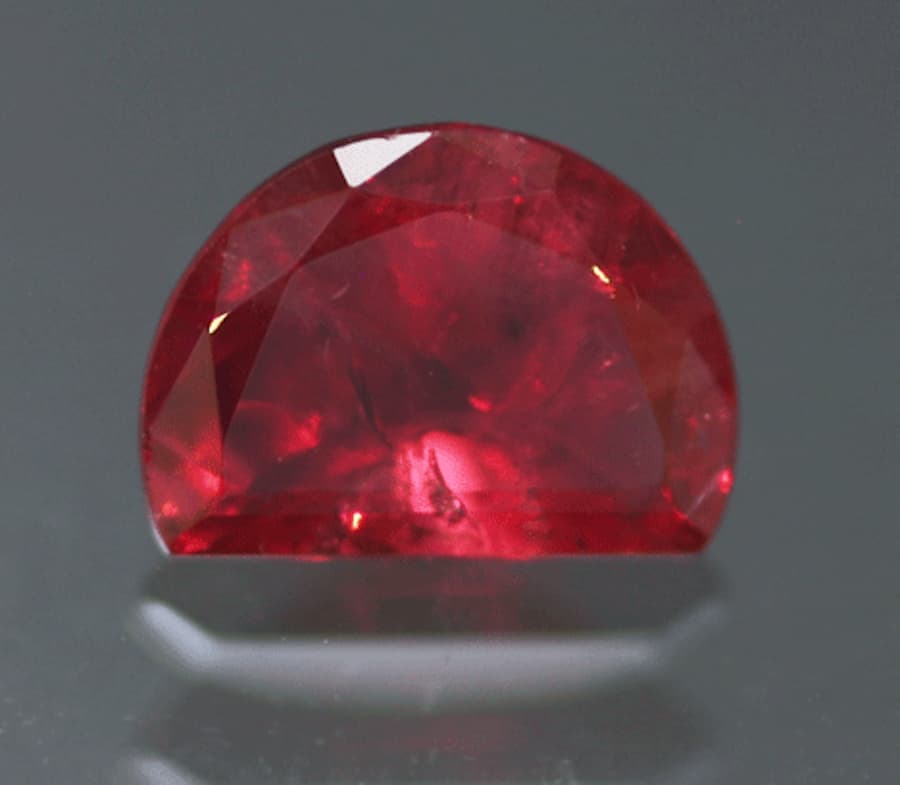Red Beryl Value, Price, and Jewelry Information
Originally known as bixbite, red beryl is one of the rarest, most desirable, and most expensive gemstones. Most fine crystal specimens are zealously guarded by mineral collectors and are never faceted.
1 Minute Read
Originally known as bixbite, red beryls are some of the rarest, most desirable, and most expensive gemstones.
Start an IGS Membership today
for full access to our price guide (updated monthly).Red Beryl Value
The great rarity of this material and its popularity with collectors mean that almost any sized piece in any clarity and color grade can find a ready buyer.
Comments
Discovered in 1904, this member of the beryl family is found in gem quality at only one site, the Wah Wah Mountains in Utah. Most fine crystal specimens are zealously guarded by mineral collectors and never faceted.
The best stones would have a raspberry pink to slightly purplish red color and be no more than slightly included. The rule of exponential increase in price with increase in size decidedly applies to this gem so often found in sub-carat sizes. With red beryls, cut is an afterthought, value wise. Gem cutters seek to produce the largest possible gems from their rough. As a result, windowed stones with poor proportions are in the majority.
Unlike other beryls, red beryl occurs in white volcanic rhyolite. Lapidaries cut fewer than 10,000 stones per year, with more than 95% of those being melee, mostly in lower grades. Few crystals approach gem quality.
In the past, various commercial mining ventures have had sporadic success in producing stones, but a new enterprise, using more modern methods, is doing better.
Synthetics
Recently, Russian synthetic red beryl has come on the market.
Sources
- Wah Wah Mountains, Utah: gem quality.
Care
Although it has an exception hardness of 7.5 to 8, red beryls can have many inclusions. Extremely rare faceted pieces may also have received fracture fillings. Therefore, for care purposes, treat these gems like emeralds, another beryl gem. However, you'll more likely encounter these gems in a mineral collection than in a jewelry collection. Consult our gemstone care guide for recommended cleaning methods.
Joel E. Arem, Ph.D., FGA
Dr. Joel E. Arem has more than 60 years of experience in the world of gems and minerals. After obtaining his Ph.D. in Mineralogy from Harvard University, he has published numerous books that are still among the most widely used references and guidebooks on crystals, gems and minerals in the world.
Co-founder and President of numerous organizations, Dr. Arem has enjoyed a lifelong career in mineralogy and gemology. He has been a Smithsonian scientist and Curator, a consultant to many well-known companies and institutions, and a prolific author and speaker. Although his main activities have been as a gem cutter and dealer, his focus has always been education.
Barbara Smigel, PhD. GG
Barbara Smigel is a GIA certified gemologist, facetor, jewelry designer, gem dealer, gemology instructor and creator of the well-regarded educational websites acstones.com and bwsmigel.info.
International Gem Society
Related Articles
Ten Gemstones Rarer than Diamond
What Causes Emerald Fractures?
Jadeite Value, Price, and Jewelry Information
Dickinsonite Value, Price, and Jewelry Information
Never Stop Learning
When you join the IGS community, you get trusted diamond & gemstone information when you need it.
Get Gemology Insights
Get started with the International Gem Society’s free guide to gemstone identification. Join our weekly newsletter & get a free copy of the Gem ID Checklist!
